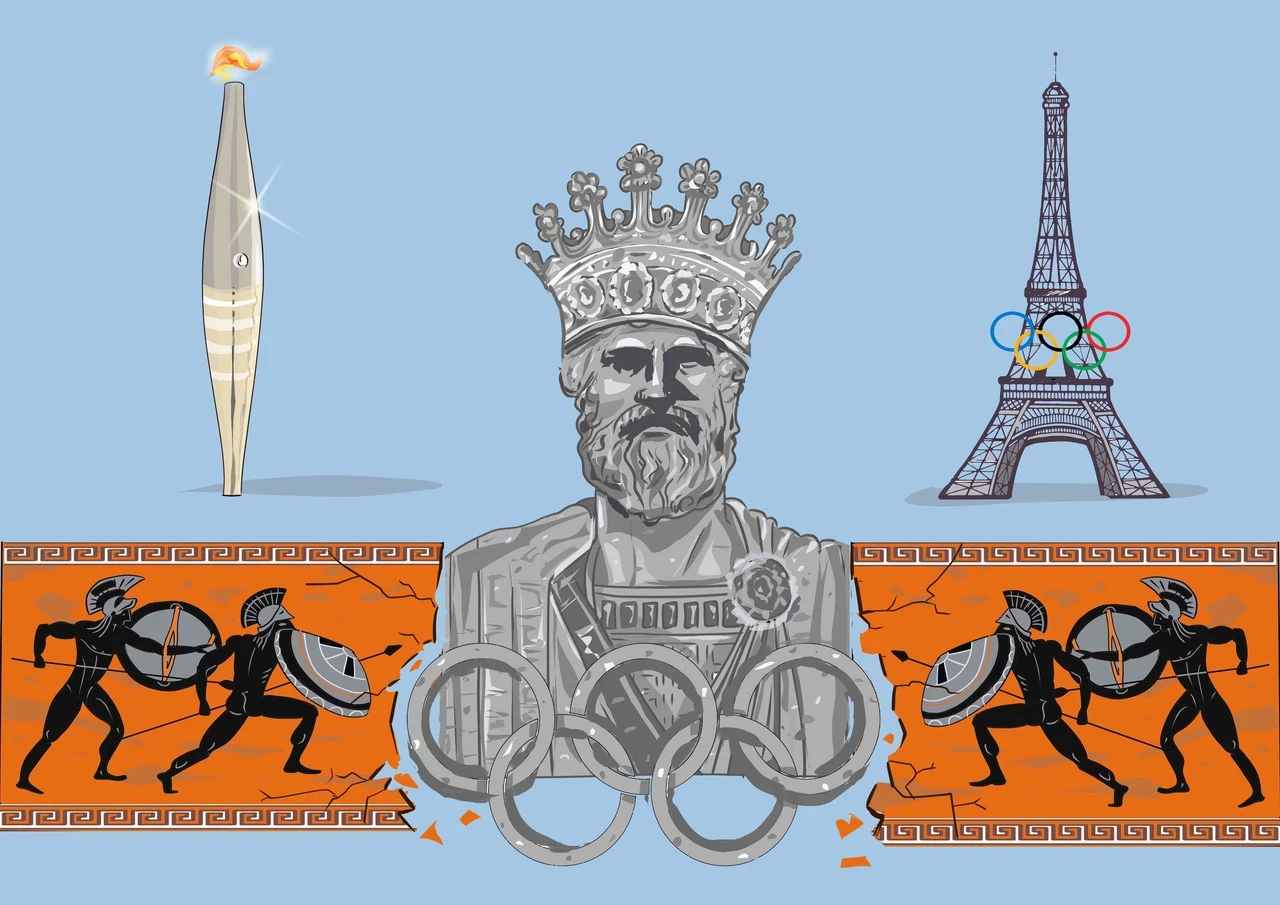Bearing The Torch
What Olympic Values Rooted In The Past Transmit To Our Sustainable Future.


OLYMPISM—THE PHILOSOPHY of the Olympic Games is, today more than ever, a new idea, even though it is rooted in the deepest memory of our shared humanity.
When the King of Elis, Iphitos, created the first Olympiad in 776 BC, he wanted to create a moment of peace, a truce to suspend the conflicts between Greek cities. The Olympic Games allowed the previous day’s enemies to cross hostile cities in arms if they joined the competition. The Games suspended war, and no city would deviate from this rule, whose application was monitored by the gods, who were sometimes jealous of men’s exploits.
Three millennia have since passed. Wars have not disappeared; cities are now called powers or superpowers, and the conflicts between them have lost none of the intensity of the fratricidal struggle between Sparta and Athens during the Peloponnesian War.
In this context, Olympism is more necessary than ever, more vital in bringing together, physically and symbolically, women and men from all over the world in the quest for medals forged in the metal of dialogue and peace. It is often overlooked that there are now more nations participating in the Games than there are represented at the UN.
Ever since prehistoric man compared his ability to throw a javelin or a hammer as far as possible, sporting competition has been an essential catharsis for human societies. It allows us to compete against each other based on rules that are accepted by all and to create the conditions for universal harmony.
A factor of peace, Olympism is also part of the transmission of universal values. It is a history that remembers the heroes rather than the winners because the Olympic language is, above all, one of effort, respect, and excellence. For competitors from China, Guatemala, or Chad, sport is a universal means of communication—by each person—the movements, the race, the technique—and is understood by everyone, without exclusivity or misinterpretation.
Monaco is a land of Olympism. This is undoubtedly the greatest strength of this international institution. It does not care about the size of its members. It only recognizes their commitment to serving its values. Monaco is an Olympic country, and Princess Charlene and I are proud to have taken part in the Games as athletes. Just as I am proud to have as a grandfather the great champion John B. Kelly, who brought home three gold medals for his country in the rowing events.
It is not a question of enhancing our ego. From the depths of our personal convictions and the meaning attributed to the Principality’s political action, it’s about thinking about the world we want to pass on.
This reflection takes into account not only the Olympic values of those who came before us but also the concern for the environment that we want to leave to future generations. In this respect, Paris 2024 set an example, as the Games have, among other things, established new sustainability standards for major sporting events by encouraging energy saving, innovation, and creativity. If we add the drastic reduction in the carbon footprint and the use of renewable energies, these Olympic Games marked the start of a new era—an era that combines respect for others with respect for our natural environment.
Prince Albert is a member of the International Olympic Committee (IOC) who competed in five consecutive Olympic Winter Games (1988, 1992, 1994, 1998, and 2002).
The views and opinions expressed herein are the views and opinions of the author and do not necessarily reflect those of The Monegasque™.
Disclosure: The Monegasque™ enhances the editing process with the help of carefully selected AI tools. These tools provide valuable support without taking over the editing process completely, ensuring that the final product is the result of human creativity and expertise augmented by the benefits of enhanced technology. This article is protected under the copyright of The Monegasque™. Unauthorized reprinting, republishing, or rewriting of this content is strictly prohibited without explicit permission from The Monegasque™. Quotations from this material are permissible provided that a direct link to the full article on The Monegasque™ is included.